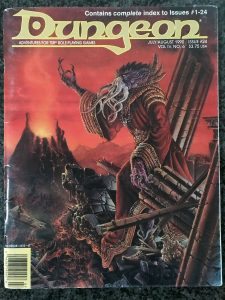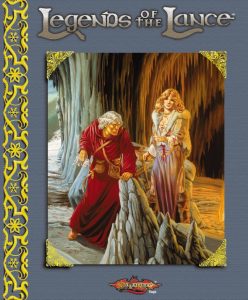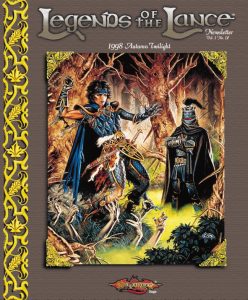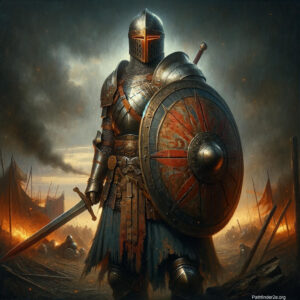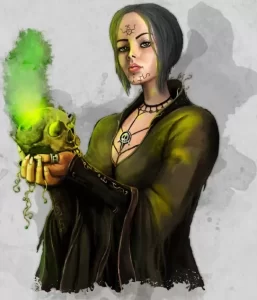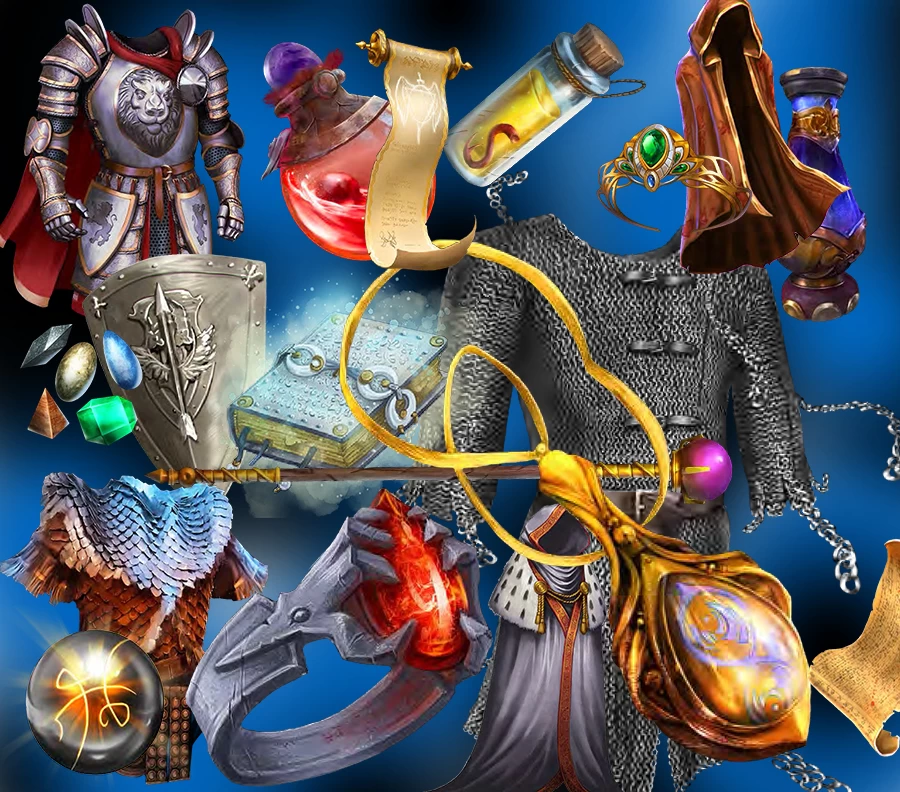
Types of magic items include armor, potions, scrolls, rings, rods, staffs, wands, weapons, and wondrous items. Magic items also have rarities: common, uncommon, rare, very rare, and legendary.
A magic item's description explains how the item works. Handling a magic item is enough to give a character a sense that something is extraordinary about the item. Casting the identify spell on the item then reveals its properties. Alternatively, a character can concentrate on the item during a short rest, while being in physical contact with the item. At the end of the rest, the character learns the item's properties.
Potions are an exception; a little taste is enough to tell the taster what the potion does and certain magic items require a user to attune to them before their magical properties can be used. Attuning to a magic item requires that you spend a short rest concentrating on it (this can't be the same short rest used to learn an item's properties). Depending on the nature of the item, this concentration can take the form of prayers, weapon practice, or meditation. In any case, the concentration period must be uninterrupted. Once you are attuned to an item, you can use its magical properties. An item can be attuned to only one creature at a time. A creature can be attuned to no more than three magic items at any given time, and you can attune yourself to only one item during a short rest. Your attunement to an item ends when the item has been more than 100 feet away from you for 24 hours and when you die. You can also voluntarily end your attunement to an item with another short rest.
Selling magic items is problematic. Finding someone to buy a potion or a scroll isn't too hard, but other items are out of the realm of most but the wealthiest nobles. Likewise, aside from a few common magic items, you won't normally come across magic items or spells to purchase. The value of magic is far beyond simple gold and should always be treated as such.
Unless you decide your campaign works otherwise, most magic items are so rare that they aren't available for purchase. Common items, such as a potion of healing, can be procured from an alchemist, herbalist, or spellcaster. Doing so is rarely as simple as walking into a shop and selecting an item from a shelf. The seller might ask for a service, rather than coin.
In a large city with an academy of magic or a major temple, buying and selling magic items might be possible, at your discretion. If your world includes a large number of adventurers engaged in retrieving ancient magic items, trade in these items might be more common. Even so, it's likely to remain similar to the market for fine art in the real world, with invitation-only auctions and a tendency to attract thieves.
Of course, magic items can be used to travel to other planes of existence. Many spells and magic items can draw energy from these planes, summon the creatures that dwell there, communicate with their denizens, and allow adventurers to travel there. You might undertake a quest to rescue a friend from the horrific depths of the Abyss, or find yourself hoisting a tankard with the friendly giants of Ysgard. You might walk on streets made of solid fire or test your mettle on a battlefield where the fallen are resurrected with each dawn.
And let's not forget that monsters use magic items too! Intelligent monsters often use magic items in their possession, while others might hide them away to ensure they don't get lost or stolen. For example, if a hobgoblin tribe has a +1 longsword and an alchemy jug in its treasure hoard, the tribe's warlord might wield the sword, while the jug is kept somewhere safe.
Magic items are gleaned from the hordes of conquered monsters or discovered in long-lost vaults. Such items grant capabilities a character could rarely have otherwise, or they complement their owner's capabilities in wondrous ways.
